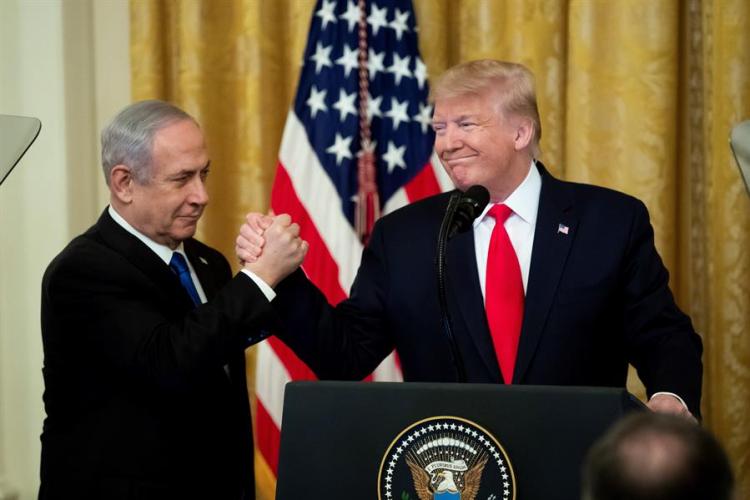Cuba repudiated this Wednesday the “biased and misleading” peace plan announced by U.S. President Donald Trump for the Middle East, considering that it underpins Israel’s position in the disputed territories and violates the rights of the Palestinians.
“I reject the biased and misleading U.S. peace plan that enshrines the Israeli occupation and violates the inalienable right of the Palestinians to have their own State on the pre-1967 borders, with East Jerusalem as capital and the return of refugees,” Cuban Foreign Minister Bruno Rodríguez wrote on Twitter.
Repudio sesgado y engañoso plan de paz de #EEUU que consagra la ocupación israelí y conculca el derecho inalienable de los #palestinos a tener su propio Estado en las fronteras anteriores a 1967, con Jerusalén Oriental como capital y al retorno de los refugiados. pic.twitter.com/R0ozmt3UG7
— Bruno Rodríguez P (@BrunoRguezP) January 29, 2020
Hours before and also in his social network account, Rodríguez reiterated his criticism of the U.S. government for its desire for “imperialist domain,” its way of treating Latin America and the Caribbean as a “subordinate region,” while condemning Washington’s “aggressiveness” against Cuba.
The island, which is going through a tense moment in relations with the U.S., has been aligned with the cause of Palestine since it established relations with the Arab nation several decades ago.
Havana defends a “peaceful and lasting” solution to the Palestinian-Israeli conflict based on the creation of two different states and Palestine’s total sovereignty.
Cuba expresa “enérgica condena” a que EEUU reconozca el Golán como territorio de Israel
The proposal announced by Trump supports Israel’s annexation of the Jordan Valley, in addition to settlements in the West Bank, and presents a limited sovereignty of a hypothetical State of Palestine.
The plan proposes a fragmented Palestinian state with Israeli settlements in its interior connected to the Israeli state through corridors that divide the territory, which would be isolated from the outside except at the border of the Gaza Strip with Egypt.
Trump initially indicated that Jerusalem would continue being Israel’s “integral capital,” but subsequently pointed out that the Palestinians could install theirs in the eastern part of that city, occupied by Israel in 1967 and annexed in 1980.










